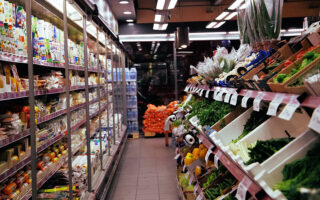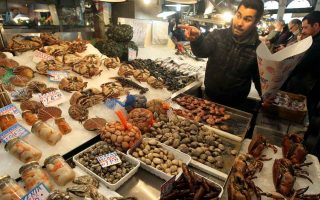Food prices consistently higher than EU
Main causes include imported raw materials, small market size, ‘blurry’ retailer-supplier ties

The turbulence in energy prices and other commodities like cereals and grains brought on by Russia’s invasion of Ukraine may have exacerbated the inflationary crisis for almost 12 months now, but for many years in Greece, the cost of food and other necessities has not been in line with the purchasing power of the country’s citizens.
Despite the recession-induced fall in consumption, this discrepancy remained even during the 10-year financial crisis, with the so-called internal devaluation only having an impact on wages, pensions and incomes in general, but not prices.
More recently, Greece’s gross domestic product per capita in purchasing power standards in 2021 was 65% of the average for the European Union, placing it second to last behind Bulgaria.
The main reasons cited for this imbalance are Greece’s significant reliance on imports for primary and secondary materials, the market’s small size, which does not favor price competition from suppliers who are both Greek and foreign, and numerous “blurred” areas in supplier-retailer relationships that still exist despite the issue being raised by the Competition Commission and by government announcements.
Therefore, it is seen as little coincidence that during this most recent crisis, food inflation in Greece has consistently been higher than in the eurozone from last November to August, with the gap even widening by 3.8 percentage points.
This is taking place in addition to the difference that frequently exists in absolute prices of similar products in Greece and other European countries.
Tellingly, Greece is more expensive compared to countries where the purchasing power is higher (such as Germany and France).
With regard to the issue of dependence on basic raw materials, the example of bread and a range of foodstuffs with flour as the basic raw material is a telling one.
Bread is produced from flour, mainly from soft wheat, a product that is grown to a very small extent in Greece, unlike durum wheat, which is mainly used for pasta.
As a result, Greece covers only 10% of its needs for soft wheat from domestic production and imports the rest. Indicatively, until the beginning of the war in Ukraine, 30% of Greece’s needs were covered by imports from Russia and Ukraine.





